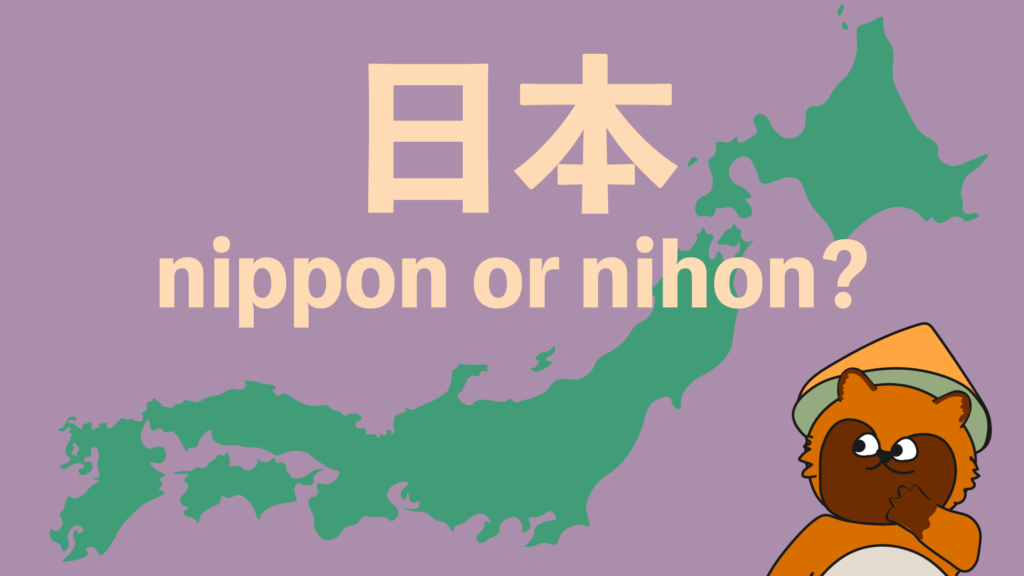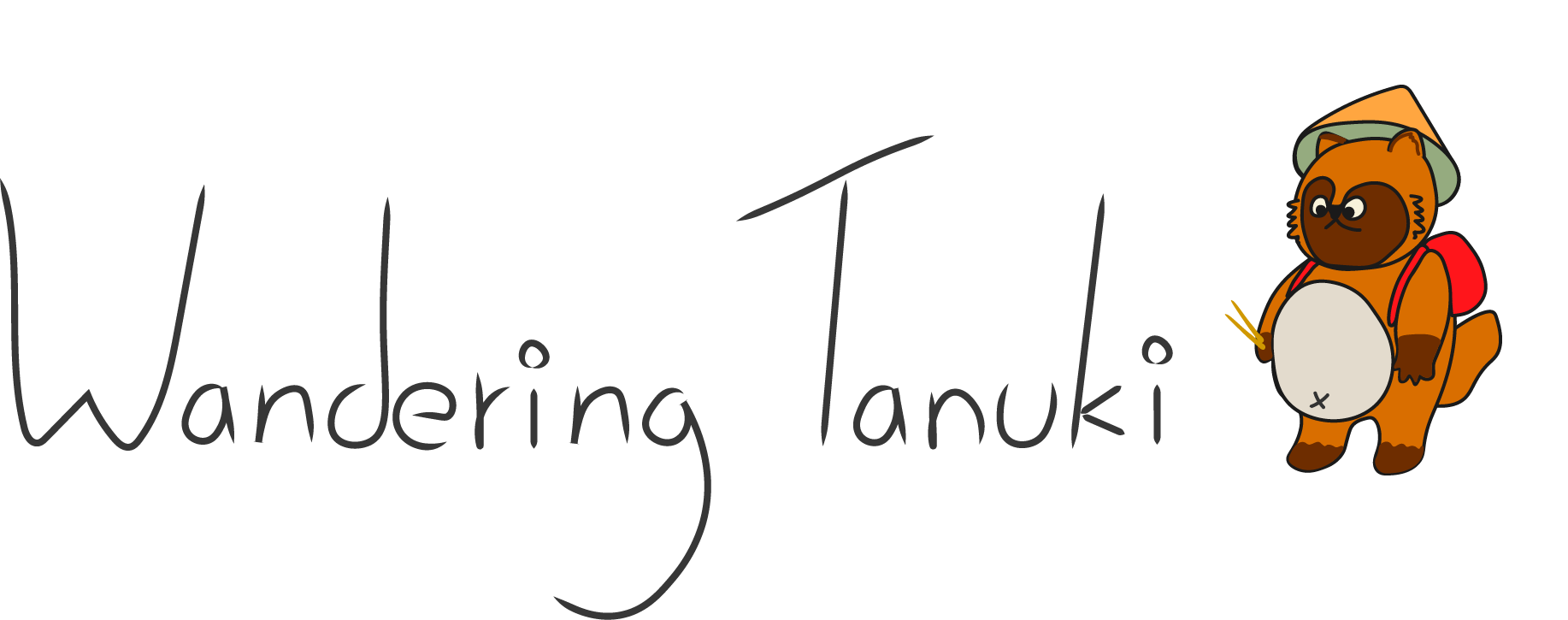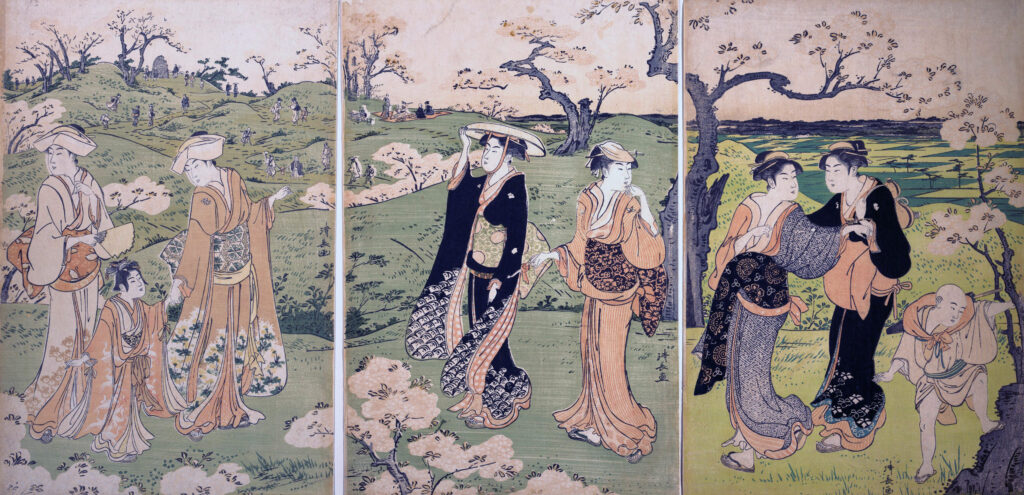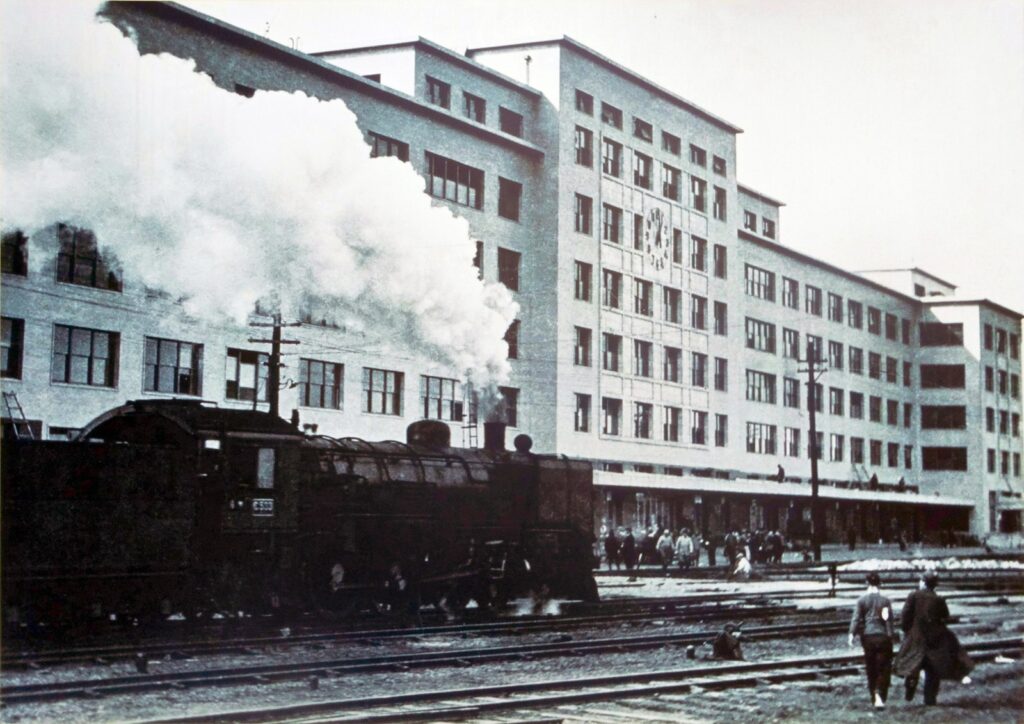Japan in Japanese: Is it Nippon or Nihon?
You probably know that 日本 is the written word for “Japan” in Japanese. But do you know how to pronounce it? This is a question that’s asked by Japanese learners and even Japanese natives!

In Japanese, there are two ways to pronounce 日本, nihon and nippon. To find out which is “correct”, we need to look at the history of the word 日本.
History of the name of Japan in Japanese
TORII Kiyonaga, CC BY-SA 4.0, via Wikimedia Commons
Yamato – 倭
Japan was not always called 日本. In fact, before the year 700 it was called yamato (倭). During this time there wasn’t a clear concept of country in Japan.
When outsiders from Korea and China visited Japan, they wondered what to call Japan. This is when it started being called yamato.
The change from 倭 → 大和
The original yamato (倭) ,can be pronounced either yamato or wa, and also has the meaning of “dwarf”. Some theorists say that Japanese people were not happy with the name that was given and eventually changed it to 大和 (also pronounced yamato).
Even today, Japan is still represented by the name, 大和, in certain cases. The word, 大和撫子 (yamato nadeshiko) means an ideal Japanese woman with traditional values and strong character. The Japanese national women’s soccer team is called Nadeshiko Japan.
More commonly, the second character of 大和, 和 (pronounced wa), is used to mean “Japan”. This doesn’t appear as the official country name, but it is used in a wide range of words to mean something that is Japanese.
For example, 和食 (washoku – japanese food), 和菓子(wagashi – japanese sweets), or 和室(washitsu – japanese style room) all contain 和(wa).
How it changed to 日本
Although there are different theories, the change to 日本 likely happened because Japan wanted to establish their own concept of the country. The previous naming of yamato came from Chinese influence.
It’s said that it was Emperor Tenmu who started to use the word 日本. The earliest evidence of this word appears in the Book of Tang in the year 703.
The naming of 日本 comes from the idea that Japan is the “land of the rising sun”. 日の本(hi no moto) means the origin of the sun. Because Japan is east of China, it would be the direction the sun would rise. The sun is also an important in Shinto religion, which has been a part of Japanese culture since ancient times.
Development of the two pronunciations, Nippon and Nihon:
The Japanese copied the Chinese way of pronouncing 日本, which sounded close to nippon at the time. This is how the word was widely pronounced.
During the Edo period between 1603-1868, the fast-talking Edo people started to blur the word into nihon. Since then, both pronunciations have coexisted.
Side note: Why is the country called “Japan” in English?
At this point, you might be wondering how the country name turned into “Japan” in English. Japan sounds nothing like nippon or nihon!
The name “Japan” may have come from Marco Polo’s accounts where he wrote the name for Japan as Cipangu. This likely came from the Portuguese pronunciation.
The modern Shanghainese pronunciation of 日本 is also very similar to “Japan”, it is pronounced “zeppen”. This might have something to do with the origin of the word, but no one knows for sure.
What’s the difference between Nihon and Nippon?
Although both nihon and nippon are equally used in different situations, there are some patterns as to when and where each one is used.
Unknown authorDuplicated by: kyu3 (124201) from Komaki, Aichi prefecture, Japan, Public domain, via Wikimedia Commons
Regional
The Edo period is when nihon developed as the second pronunciation for 日本. The capital of Edo is the modern day Tokyo. This is why the people of the Kanto region (where Tokyo is) tends to use nihon, but the people of Kansai (where Osaka is) tend to use nippon.
Nationalism
The other difference between the pronunciation is the nuance of nationalism. Nippon was used during the Empire of Japan which lasted from 1868 – 1947.
During this time, the country was called 大日本帝国(dai nippon teikoku), which literally means “the big empire of Japan”. Even today, the pronunciation of nippon tends to bring feelings of nationalism.
Age
Because of the association of nippon with the times of the Empire, the age range that uses nippon is usually the older generation. In more recent years, 61 percent of people say that they call 日本 as nihon.
Examples of when you will see Nihon or Nippon:
As you go through the list, you might notice that more nationalistic things or old company names tend to use nippon. In most textbooks today they teach nihon to foreigners because that is more common in daily life.
When Nihon is used:
日本語 – nihongo – Japanese language
日本人– nihonjin – Japanese person
日本海 – nihonkai – Sea of Japan
日本大学 – nihon daigaku – Nihon university (a private Japanese university)
日本橋 – nihonbashi – Bridge in Tokyo
When Nippon is used:
がんばれ日本 – ganbare nippon – Go Japan! (common cheer at sports games)
日本一 – nippon ichi – Number one in Japan
日本銀行 – nippon ginkou – Bank of Japan
日本橋 – nippon bashi – Shopping district in Osaka
日本放送協会 – nippon housou kyoukai – Japan Broadcasting Corporation (NHK)
So which is correct, do I say Nippon or Nihon?

You can choose whatever you prefer! However, it is more of a trend to use nihon especially for the younger generation.
In an official release by the NHK the national broadcast company of Japan, they have said that their policy is to use nippon whenever it is talking about something official.
The Japanese government has talked about unifying the name of the country, but they have yet to reach a decision. For now, people can say both nihon or nippon and be correct!
I hope that this clears up any confusion about the two pronunciations of Japan in Japanese! Check out other articles on my Japanese language and culture blog like How to compliment women in Japanese or How to order food at a restaurant in Japanese
~ Tanuki








You’re very welcome! Glad to be of help 🙂